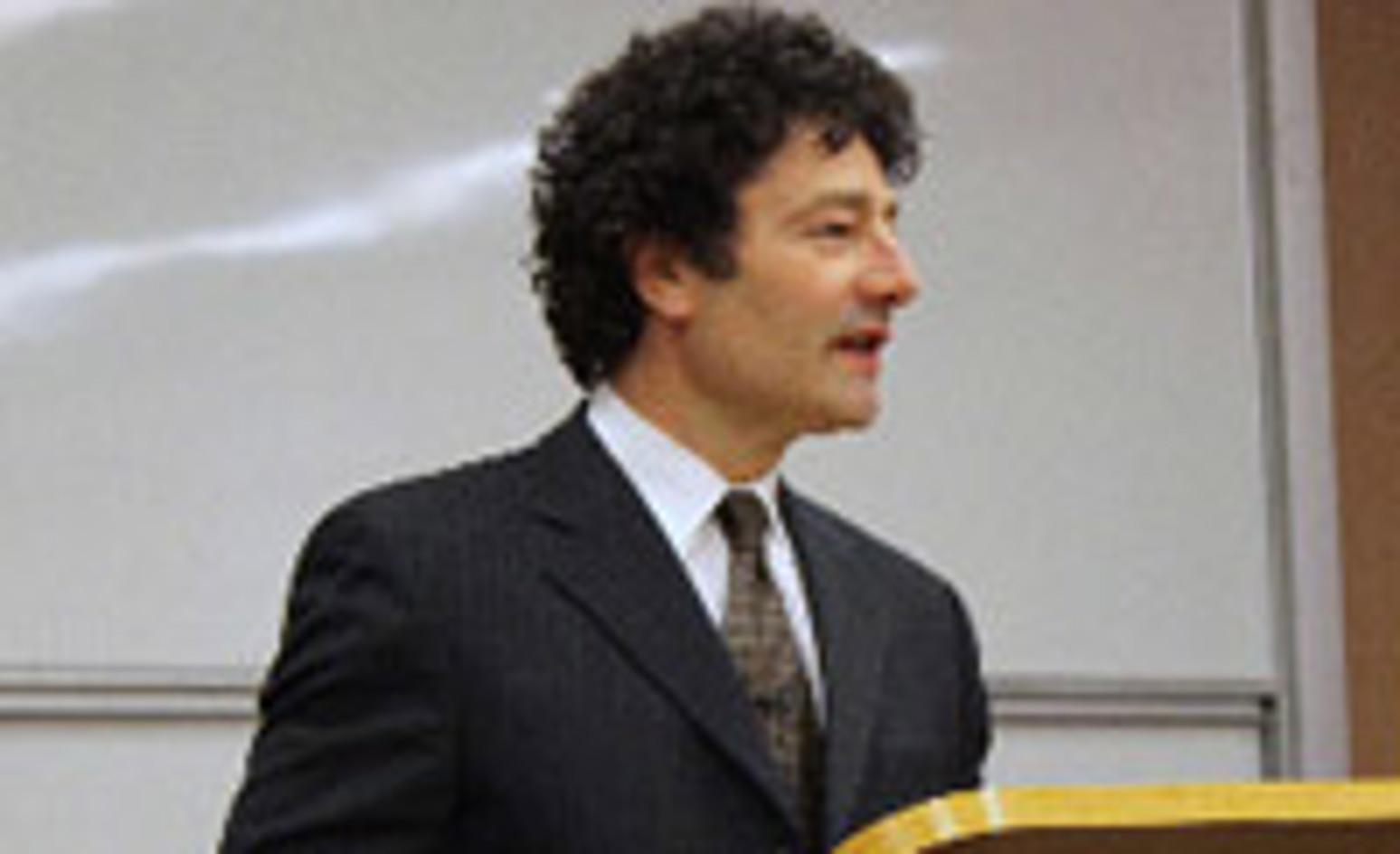In his play, Twelfth Night, William Shakespeare says leadership comes in many ways, “Some are born great, some achieve greatness and some have greatness thrust upon them.”
Antoni Cimolino, Director of the Stratford Shakespeare Festival, adds a fourth category: some people redefine greatness.
It’s that last category of people that demonstrates true leadership– those who are inspiring examples of how to be the best we can be.
Discussing leadership lessons from Shakespeare during a presentation at Ivey on January 26, Cimolino said Shakespeare’s plays are full of people who want to be leaders, but few are truly admirable.
“There is only one kind of leadership that emerges from Shakespeare’s plays without taint and it’s the moral kind of leadership,” he said.
According to Cimolino, such moral leadership was demonstrated in King John, a play about temptation and survival in a cutthroat world that could just as easily be set amidst the financial crisis of 2007-9. In King John, most of the characters give in to the temptation to do something immoral to get ahead except for a character called Philip the Bastard, who doesn’t want anything so badly that he’ll do something self-destructive to get it.
“He has found a firm place to stand in the muck of the world. He is simply himself,” said Cimolino. “Through Philip, by the end of the play, you begin to understand what the word ‘honour’ means. You begin to understand what legitimacy means.”
After more than 20 years’ experience as an actor listening and speaking the words of Shakespeare, and as a director, translating the words into action on the stage, Cimolino has gained many insights about leadership from Shakespeare and lessons that still hold true today.
“Human nature has really changed in the last 400 years. When we’re seeing these plays, we’re seeing life as we recognize it today,” he said.
Cimolino shared the lessons he has learned from numerous types of leaders in Shakespeare’s plays.
There is King Richard the Second who is a prime example of an ineffective leader, with no clear strategy and no idea how he should use his power, which later leads to his downfall.
“Richard’s problem is he’s a narcissist with a fatal sense of entitlement. He believes in the divine right of kings – the idea that if you are king, you hold the position because it is God’s will,” said Cimolino. “I’ve never heard of the divine right of CEOs, but I’m prepared to bet there are plenty of leaders in the corporate world that subscribe to that circular logic – that sense of I deserve this position and nothing I do is wrong.”
Another example is Macbeth, a leader who Cimolino said sacrificed all of his principles in his quest to seek power.
“He believes he is destined for greater things and that overcomes his better judgment and leads him to commit murder. This shows the corrosive effect of seeking power for its own sake,” said Cimolino. “Power, the old saying goes, tends to corrupt, but power is an essential means to an end. It’s when power is pursued as an end to itself that it becomes corrosive, sterile and self-defeating.”
Or take Henry V, who Cimolino said is a good role model of effective leadership because he knows how to get people on his side by getting to know them and never losing touch with his shop floor. Although Henry V seems to be a hero because he’s successful in rallying his troops to war, Cimolino points out that Shakespeare leaves it open as to whether or not Henry is really admirable and suggests he has a trumped up rationale for invading another country.
“The political gamut he plays involves risk, not just to himself, but for others, leaving us to question whether he’s being guided by any kind of moral compass,” he said. “That’s one of the most important lessons about leadership that can be learned from Shakespeare’s plays – treat it with a healthy dose of scepticism.”
